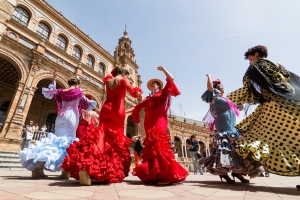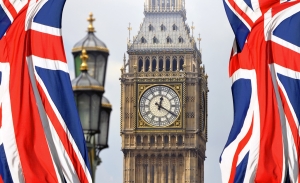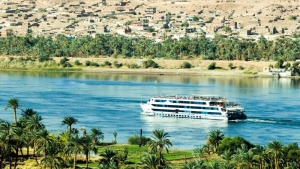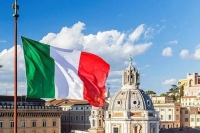
Blog
Timeshare Resale markets in different countries: Part 6. Why are Italian Real Estate Agencies Not Succeeding in Selling Timeshares?
There are a lot of timeshare resorts in Italy, but not enough.
Following the timeshare boom in Spain, timeshare came to Italy in the early 80s. The timeshare resorts started spreading over the entire Italian coastline, in all ski regions, and close to numerous places of attraction and cultural heritage sites. But that's where the similarities end.
Like any other country new to the timeshare industry, Italian authorities faced the task of describing timeshare legally, creating regulations to ensure control over the industry, and ensuring the safety of buyers and owners of this property.
It was decided to classify timeshare as a type of real estate. As a result, Italian timeshares can be considered one of the most reliable types (you purchase a share of real estate), but at the same time, they are the least flexible and the most complicated in structure.
Traditionally, the founders of timeshare resorts are Italian developers, the resorts are managed by Italian management companies, sales were handled by Italian marketing companies, and they sold mainly to Italians. These timeshares are extremely convenient specifically for Italians, and timeshare resorts have only begun to integrate into the international tourism system in the last 15 years.
Italians traditionally preferred to holiday within their own country. Fortunately, there are endless places to enjoy. Italians bought timeshares mostly to visit their home resort. The peak season weeks of Mid-August and Christmas were extremely popular and sold out first. Having sold out of these peak weeks, resorts had difficulty selling the rest of the year. That’s when the marketing companies turned their attention to holidaymakers from other countries, as their holiday season may differ from Italy's.
Today in Italy, there are 138 timeshare resorts affiliated with the RCI exchange system and 103 resorts affiliated with Interval International.
Timeshare resale in Italy is considered one of the most difficult in Europe. The reason is that even after so many years, there are still no specialized timeshare resale agencies.
Attempts have been made to create online billboards, but without providing assistance with timeshare ownership transfer and negotiation between buyer and seller, they just did not succeed.
Timeshare Resales fall on the shoulders of real estate agencies since timeshare in Italy is a type of real estate. But reselling timeshares through real estate agencies is extremely difficult.
The main reason is that real estate agencies do nothing to promote timeshares and do nothing to attract potential timeshare buyers.
Timeshare advertisements are placed together with holiday home offers, making them almost impossible to find among the numerous real estate listings. There is no way to search only for timeshares, there is no way to segregate them, there is no such option in the search filters.
There is no way a potential buyer could find, for example, all the timeshares available for resale in Sardinia, or in Sicily, or in ski resorts, or in Tuscany like a buyer would normally be looking for.
The buyer is usually looking for timeshares in a specific region. They want to compare offers by price, by the location of the timeshare resort on the map, and by the infrastructure of the resort.
Instead, the buyer should search on the real estate website for the timeshare by exact address. The timeshare ad only describes the apartments themselves and has poor quality photos (of course, can’t imagine somebody making good pictures on holiday of how the bedroom or the kitchen and bathroom looks like, or even less chances of somebody inviting a professional photographer to do this). What is missing in these ads is the most important thing to influence the timeshare sales – there is no description of the timeshare resort infrastructure. A timeshare is valuable over the purchase of the holiday home by having on-site resort amenities such as a large swimming pool, children's pool, a gym, a playground and children’s animation, bars and restaurants, a private beach, free bicycles, horse riding, surfing, storage rooms and drying rooms for ski equipment, ski lifts, spa, tennis courts, golf, and much more. If you deprive the timeshare advertisement of all these attractions and at the same time do not provide a link to the timeshare resort website, then you are left with unattractive photos of walls, beds, kitchens, and a crooked view from the balcony.
But that's not the only problem with selling a timeshare through a real estate agency.
The area is full of small real estate agencies. You would easily find a few in each tiny little town. The chances that your buyer will walk into exactly the agency where you placed your sales offer tend to zero.
And then, all these agencies publish information only in Italian, and in most situations, they don’t even have agents who could communicate with foreigners in any language other than Italian. This means that your offer for sale will remain inaccessible to foreigners who would probably be very happy to buy a timeshare in Tuscany, Sicily, Sardinia, the lakes, or the Dolomites.
What can we recommend to timeshare owners in Italy to achieve the resale of their timeshare?
Owners of Italian timeshares should list them with international timeshare resale agencies which specialize only in selling or renting out timeshares. At this moment the leaders in this area are English agencies, of which we currently highlight Travel & Leisure Group Ltd (https://www.travelandleisuregroup.ru) and Timeshare Online (https://www.timeshareonline.eu/index.php)
Global Insights: Analyzing Timeshare Resale Markets Worldwide. Chapter 5: Timeshare Resale Market in Asia Pacific.
The timeshare market in Asia Pacific is considered the youngest. Historically, it was developed and refined for European tourists, who were invited there by European timeshare sellers. One of the pioneers in the region was the Royal Resorts group, which is now part of the Karma Group empire. Founded by an enterprising entrepreneur who climbed the timeshare sales ladder in Tenerife, from a street consultant inviting tourists to presentations to a sales director who invested all his money in a resort in Goa, India, it is now the most well-known group of resorts in the region. These resorts are located in India (Goa, Kerala, Bangalore, Jaipur, in the North), Thailand (Phuket), Indonesia (Bali, Lombok, Java), Australia, as well as in Germany (Bavaria), Italy (Tuscany), the United Kingdom (London, Isles of Sicily, Birmingham), Greece (Crete, Mykonos), and France (Saint-Tropez, Normandy).
After Goa, timeshare resorts appeared in Thailand and almost immediately in Bali. The timeshare industry in Southeast Asia in the late 90s resembled Tenerife in the early 80s, not only in terms of market uncontrol but also because the new market attracted the same players who were pushed out of Europe by the strict legislation introduced at the time. However, the market did not turn wild because local entrepreneurs in these countries actively entered the industry. And as it is known, order is quickly established under such conditions.
One feature of most Asia Pacific resorts is that foreigners cannot own land, and therefore timeshare resorts, by their legal structure, are either limited membership clubs or long-term leases for up to 35 years. Such a shorter form of timeshare has also formed different resale requirements. The point is that many timeshare owners, after active use for 15-20 years, if for various reasons they had to stop using the timeshare, do not spend time selling the remaining 10-12 years of use and simply abandon it or write it off to the resort. Moreover, unlike timeshares that qualify as real estate (in Italy, France, partially in Spain), club membership type does not accumulate multi-year dues and then collects them but simply excludes from membership due to non-payment of one or two membership dues and does not chase after anyone.
This does not apply, of course, to very valuable and expensive Asia Pacific resorts. Memberships such as Marriott, Absolute... Karma, which cost from €15,000 to €20,000 per week on the primary market. They are not abandoned but an effort is made to return some of the money. They are very popular on the secondary market because there are those who really liked these clubs but who are sorry to pay the full price for them.
And here in resales, the same ubiquitous English agencies dominate, among which we highlight as the most successful Travel & Leisure Group Ltd (https://www.travelandleisuregroup.co.uk ) and Timeshare Online (https://www.timeshareonline.eu/index.php ). There was actually no expansion into the Asia Pacific market. The main buyers in the region are the English, Australians, and Europeans, who are fluent in English. When Indians started actively buying timeshares, the situation in the resale market did not change, as English is practically the first language for the middle class in India. There is a high level of trust in English companies in the region. This prevented local timeshare sales agencies from competing. Especially since it is always difficult for young companies to compete with those that have over 20 and 30 years of experience in the market, which have a clear strategy and responsible approach.
But this is also a wonderful opportunity for timeshares from this region to gain access to international buyers worldwide, but primarily to Europeans.
It is also worth noting that timeshares from Southeast Asia are practically not popular in America. This is understandable, for regular travel, Americans choose Florida, California, Mexico, and the Caribbean, where air travel is well established and very cheap. And to the fabulous Bali, Thailand, Goa, and Vietnam, you can go through exchange.
We deliberately put two regions in parentheses in Asia Pacific - China and Japan, where timeshares are quite developed and popular but which are very closed markets and are aimed both at their compatriots and their own resorts, thereby falling out of the interest of foreign buyers and timeshare owners.
In Conclusion: If you own a timeshare in India, Thailand, Australia, Vietnam, in Bali, etc., it is reasonable to resell it through English agencies, of which we currently highlight Travel & Leisure Group Ltd (https://www.travelandleisuregroup.co.uk ) and Timeshare Online (https://www.timeshareonline.eu/index.php)
Global Insights: Analyzing Timeshare Resale Markets Worldwide. Part 4: What's Wrong with Finnish and Scandinavian Timeshare Resale Market
Of all the Scandinavian countries, the most active buyers of timeshares are the Finns.
Finland is indeed a unique country when it comes to timeshares.
The timeshare boom in Finland coincided with the economic boom of Finland as a whole and was not related to foreign visitors, as was the case in other countries.
Finnish resort developers, having studied the concept of club vacations, promoted it as domestic tourism and property ownership.
Finnish legislation is unlike any other: Each cottage at the resort is registered as a separate company, which is part of a consortium of companies (club). When you buy a timeshare, you acquire shares and become a shareholder of a separate company, and your rights are securely protected, just like the rights of a shareholder. Your membership fee is a contribution from shareholders to cover the company's expenses. Dividends are received in the form of a week's stay in apartments.
The resort group Holiday Club Finland Oy is the industry leader in timeshares, with high quality standards, covering all the most attractive regions of Finland, Sweden, and Norway, and even expanding to Spain and the Canaries. The company is very prominent. It successfully promoted corporate business at one time. This is when large organizations acquire several weeks of ownership to provide vacations for their employees.
Finnish timeshare business is characterized by such clarity and transparency that in 2010, the Finnish government bought the company Holiday Club Finland Oy as a highly profitable enterprise.
What could give an even higher rating of reliability and quality to the timeshare market than the participation of the state itself as an investor?
However, this event radically changed the strategy of Holiday Club Finland Oy. The project in St. Petersburg and several other countries was shut down because the Finnish government logically decided that it was better to attract neighbors to purchase property in Finland, thereby developing its regions, ensuring the influx of foreign funds, and enjoying taxes in its treasury, rather than boosting the economy of other states.
Thus, the Saimaa project near the Russian border developed, where one of the main developers became Holiday Club Finland Oy.
What about the resale market?
It is very weak and very Finnish. Finns primarily buy timeshares in Finland and also in the Canary Islands, at resorts traditionally cooperating with the Scandinavian market.
Residents of Scandinavia have a special taste. They prefer modern eclecticism. Resorts satisfying the tastes of the British, Spaniards, and Eastern Europeans are rarely to their liking.
Holiday Club Finland Oy and several Finnish resorts resell their timeshares through their own sales structures. However, it is possible to sell at a price of only 60% of the resort's rates. Your week will be added to the list of offers seen by all consultants, and if it is in demand, it will be sold fairly quickly. There is also an additional price list of the resort used for the exchange of others' timeshares. To get your offer on this list, you must be willing to give up your timeshare for only 40%.
Not much? We agree with you. But it is reliable and hassle-free and does not require advance payment of fees or advertising costs.
This is very beneficial for the resort, which keeps prices high.
Another way to resell a Finnish timeshare is to contact a real estate agency. It should be noted that in Finland, mostly small local agencies operate, offering real estate and, accordingly, timeshares "in the area." There are several such agencies in every small town, and you need to sign an exclusive contract with them.
In general, the chance that your potential buyer will visit this particular agency is more elusive than real. The exception is the sale of a timeshare at the Holiday Club Katinkulta, where in the town of Vuokatti you will have a chance to sell the timeshare of this club through a real estate agency due to the extreme popularity of the club and this tourist region.
What about those whose timeshares are not in Finland?
They turn to international agencies such as Travel & Leisure Group Ltd. (https://www.travelandleisuregroup.co.uk ) and Timeshare Online (https://www.timeshareonline.eu/index.php ), Confused About Timeshare Ltd., World Wide Timeshare Hypermarket, and others with a unified database across Europe and a multilingual call center or network of national branches, and most importantly, with a bright, attractive, and information-filled website.
Those who are dissatisfied with the low prices described above also turn there.
Travel & Leisure Group Ltd. has had a Scandinavian department since 2001, which at some point accounted for as much as 50% of all sales. Even though most Finns and Swedes are fluent in English, communicating in their native language is always easier.
In summary: The Finnish market is very narrow even for those with Finnish timeshares, and its prices are beneficial for buyers rather than sellers. If Finns themselves turn to English resale agencies, there is no need to create difficulties for yourself out of nowhere. Then you would have to translate the contract from Finnish to Russian in such a delicate situation. Well, you wouldn't sign a contract when not everything is necessarily in your favor.
Global Insights: Analysing Timeshare Resale Markets Worldwide. Part 3 Why You would Not List with the Spanish Agencies?
For a long time, it didn't occur to marketing companies that Spanish timeshares might interest Spaniards. They sought buyers for Spanish resorts in England, Scandinavia, Eastern Europe, and even Italy. Unexpectedly, 15-17 years ago, Spaniards became active timeshare buyers. They were invited to presentations, and Spanish sellers representing resorts emerged.
As a result, all resale companies opened offices on the Costa del Sol coast. But hopes for Spanish buyers in the resale market didn't materialize. Spaniards continued buying timeshares only at presentations.
On one hand, Spanish offices had many clients who visited rather than called. This was crucial because face-to-face conversations took twice or even three times longer than phone calls. Most were families who had just signed timeshare contracts at presentations and deposited money. They came to clarify and check if their purchase was too expensive. Even when offered better buying conditions significantly cheaper than at presentations, they needed to return to the club where they bought at presentations to cancel the contract and get their money back. There, they were convinced that buying from the resale market wouldn't give them additional benefits like contractually promised free weeks, flight vouchers, free 3-year RCI membership cards, plus the reassignment took a lot of time. Plus, all the extra worries and hassle, etc.
At some point, resorts learned to assert their rights to deal with customers in 80%-90% of cases. Many resale agencies closed within a year or two of struggling. Some large companies like Travel & Leisure Group Ltd. and World Wide Timeshare Hypermarket Ltd. continue to support these low-profit, less effective resale departments in Spain.
At the same time, in recent years, this niche in Spain has been filled by suspicious or blatantly fraudulent companies offering different resale conditions supposedly from Spanish companies on Spanish territory. Every year, a significant number of these companies are caught by Spanish law enforcement agencies, but after a while, new ones appear with slightly modified conditions for customers and a mandatory guarantee of quick and effective resale. The peak of attacks on Russian timeshare owners by Spanish fraudulent companies was from 2008 to 2016 when several major resorts couldn't protect access to their customer databases. As a result, club members, even those who had never been interested in selling, received letters and calls from Spain with very "chocolate" conditions. If you have been a victim of such scammers in the past, they may already be under investigation today. Please contact law enforcement for information or seek assistance from specialists (that's us).
Spaniards today mostly choose large international agencies such as Travel & Leisure Group Ltd. (https://www.travelandleisuregroup.co.uk ) and Timeshare Online (https://www.timeshareonline.eu/index.php ), Confused About Timeshare Ltd., World Wide Timeshare Hypermarket, etc., with a unified database across Europe and a language call center or network of national branches, and above all with a bright attractive and information-rich website.
In conclusion: We do not recommend wasting time contacting Spanish agencies because at best, you will end up as a customer of a regional branch of a large international company, complicating your relationship with the agency with the Spanish language. At worst, you may fall victim to scammers or one-day companies.
Global Insights: Analysing Timeshare Resale Markets Worldwide. Why the UK Timeshare Resale Market is the most Successful?
In the previous article about resale markets in different countries, we provided detailed insights into the market. As of today, according to specialists, British agencies are considered the most reliable and effective for selling European timeshares. Let's discuss why.
Let's start with historical background. The UK is the birthplace of timeshare in Europe. After its successful launch in America, timeshare sellers became interested in the old continent, particularly in the UK, which shares much with the US besides language. The first British resorts emerged one after another based on historic estates, aiming to attract both patriotic Britons and Americans fond of antiquity.
The concept of holiday property ownership required swift development of legislation regulating relationships between buyers and sellers, as well as between club members and resort founders and management companies.
While the emergence of timeshare resorts and the primary timeshare market progressed rapidly, the secondary timeshare market developed gradually, experiencing trial and error in various forms (from presentations to home visits by agents). Over the years, common rules of the secondary market have remained largely unchanged, as the most effective advertising and sales methods were established.
The activity of timeshare resale agencies in England is governed by the strictest timeshare legislation in Europe. Despite the controversial reputation of timeshare in the UK, with criticism of sales pressure and aggressive techniques during presentations, as well as historical bankruptcies and fraud before legislation was introduced, Britons continue to be the most active timeshare buyers.
This is partly due to the UK's financial policy supporting pensioners in buying second homes (including fractional ownership, a type of timeshare), and the climate encouraging Britons to holiday in Spain, Portugal, Malta, Cyprus, Morocco, etc., with budget airlines making these trips accessible. Additionally, beyond media horror stories, every Briton knows several families who own and enjoy timeshares, contributing to its normalization.
But most importantly, the UK boasts the most effective and stringent timeshare legislation today, protecting buyers' and club owners' interests and regulating companies' behavior in the market. Thus, acquiring a timeshare in the UK is the most reliable and secure option.
Experience and knowledge have accumulated in the country. Besides small companies that appear and are absorbed periodically, three major players operate in the market:
The most notable figure in the resale market is Travel & Leisure Group Ltd (https://www.travelandleisuregroup.co.uk), known to us due to our partnership since 1997. Travel & Leisure Group Ltd or Travel & Leisure Advisory Services (TALAS). Once upon a time, RCI and II allowed advertisements in their magazines, and Travel & Leisure Group Ltd featured in every issue. Therefore, older sellers and buyers tend to choose them. Travel & Leisure Group Ltd's methods may seem traditional, but they yield results. To this day, Travel & Leisure Group Ltd advertises in newspapers, both international and local editions. They also advertise extensively in the in-flight magazines of airlines like Ryanair and EasyJet, targeting individual tourists, often families, who search the internet for the best deals. Another interesting strategy is their stand at the largest London exhibition center with high traffic, offering attractive deals not only for purchasing but also renting apartment weeks. Travel & Leisure Group Ltd is also the official partner of prestigious European groups like Club La Costa, Marriott Vacation Club, Diamond Resort, etc. This endorsement by the clubs directs clients, not only sellers but also buyers interested in buying weeks in their own club, towards Travel & Leisure Group Ltd.
The second interesting participant in the secondary market is World Wide Timeshare Hypermarket Travel & Leisure Group Ltd. At one point, Hypermarket even rivaled Travel & Leisure, for example, sponsoring shows about timeshare on a tourist satellite channel. However, Hypermarket eventually lost its priority position and now ranks third among agencies. In reality, it has ceded its ground to young, enterprising competitors like Confused About Timeshare Ltd. It may be conditionally called young; the agency has been in business for over 15 years, and its founder has worked in timeshare for over 25 years. However, this agency pursues an ultra-modern advertising policy, utilizing all online advertising and social media opportunities. Consequently, their audience is significantly younger than Travel & Leisure's. These are families and travelers who independently book their vacations online and use search engines for any purpose.
In conclusion, if you want to reach the widest audience of buyers, in our opinion, the most advantageous approach would be to choose Travel & Leisure Group Ltd (https://www.travelandleisuregroup.co.uk ) and Timeshare Online (https://www.timeshareonline.eu/index.php ). These are the agencies we would like to draw your attention to because, based on our experience, other players in this market significantly lag behind in efficiency or prevalence.
Something New: A Timeshare River Cruise
Especially for those who find a timeshare lacking in active holidays, who crave more than just lying on the beach, seeking vibrant experiences and thrills, a new timeshare project has emerged – the first river cruise timeshare, and in a location bursting with breathtaking sights and attractions.
It's worth noting that even before this, timeshares weren't limited to apartments at beach, ski, golf, spa, and urban resorts. There are traditional narrow canal boats in England that offer a unique journey through the English canals with various types of locks and stops at any place you fancy. There are timeshare holidays on catamarans in the Caribbean, the Red Sea, and the Mediterranean, where you can sail from island to island for a week, stopping at trendy or secluded bays and picturesque beaches. And then there's the jewel of timeshares – floating glass apartments in Venice, allowing you to cruise the canals or moor in the most beautiful spots in Venice.
Karma Karnak is the name of the four-deck timeshare cruise by the Karma Group, introduced at the beginning of this summer. The first voyage hosted special guests of the Karma Group and representatives of the exchange company RCI, with which this timeshare project is affiliated for timeshare exchanges.
A week-long cruise from Luxor offers timeshare owners an unforgettable journey to the ancient and modern marvels of Egypt.
Accommodation is in cabins of three types, for two or three people, designed in a contemporary style with Eastern design elements that immediately set a special mood for the guests.
The fusion cuisine of the buffet restaurant features dishes from around the world by a renowned chef, who delights guests with Mediterranean cuisine as well as dishes from North Africa and the Middle East. The middle deck also has an à la carte restaurant and lounge bar, offering a different menu for each day of the journey.
On the upper deck, there is a sun terrace with a swimming pool. During the cruise, guests can enjoy evening entertainment, Egyptian-style parties, cocktail receptions, Nubian shows, and belly dancing.
Karma Karnak offers guests unforgettable excursions through the Land of the Pharaohs, with many stops to savour the journey of a lifetime. Tripadvisor has already awarded this trip 5 stars and an A category.
The Karma Resorts group, previously known as Royal Resorts, being pioneers in timeshare in regions like India, Thailand, and Indonesia (Bali), now also has resorts in Italy, Spain, Greece, the United Kingdom, Germany, France, and Vietnam.
https://karmagroup.com/gallery/karma-karnak/
CATEGORIES
ARCHIVES
OUR LATEST BLOGS
-
21 May, 2024Timeshare Help Line in Italy
-
04 Feb, 2024RCI 50th anniversary
-
05 Nov, 2023How Much Can You Get from Selling Your Timeshare?
ABOUT US
Unique company, the only one on the territory of CIA that specializes in timeshare issues of all the arias and complications. Operational since 1996.
Our services
Recent Posts
- GETTING YOUR MONEY BACK FOR A TIMESHARE: Selling a Timeshare Through a Third Party, Using Intermediaries: How Specialised Agencies Handle Timeshare Sales
- Is Renting Out a Timeshare Realistic, and How Much can you Get?
- Something New: A Timeshare River Cruise
- Is There Seasonality in Timeshare Resales?












